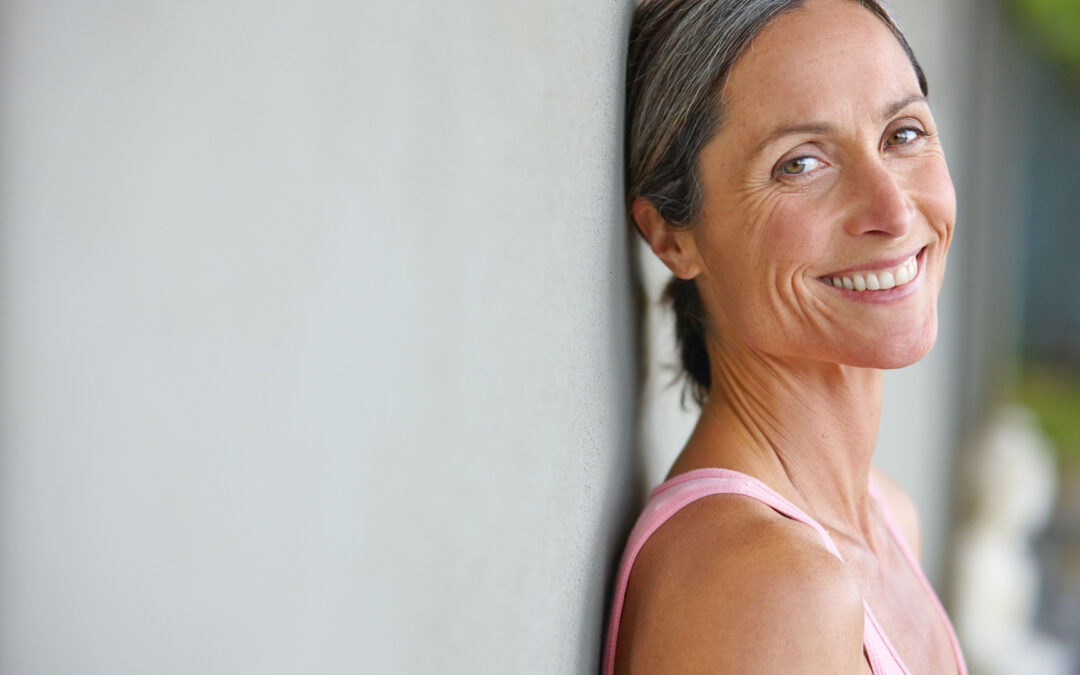
by Margaret Dawson | Jan 13, 2024 | True To Yourself
I found myself stuck in a state of emptiness
I am numb.
I am not feeling unhappy, but I’m not feeling joyous either. It isn’t a sad emotion. In fact, I can’t cry. I’ve tried. I think a really good cry, where I sob until my body shakes, would help. It can be cleansing, and a complete emotional cleanse is exactly what I need.
But right now, I am feeling nothing, really. Like when your foot goes numb, and you have to pound it on the floor until the blood flows again. I wonder what the equivalent of that would be to unnumb your mind, soul, and heart. Would an electric shock to my heart make it feel again?
I am sitting at my desk, staring at my computer screen. I take a moment to assess my life to see if there is any reason for my apathy. In doing so, I’m reminded of a conversation I had with my brother-in-law a few years ago, when I asked him the secret to being married for so long.
“Apathy,” he said.
“Truly that can’t be the answer,” I said and thought at the time. He shrugged. Maybe he was joking, but maybe he was right. Perhaps the key to living a long life and staying in a job or a marriage is pure indifference.
I am not wired for numbness. It’s why I’ve never liked weed or any drug that numbs your mind. My whole life people have asked me why I am so passionate, energetic, or driven. How can this person who snorts when she laughs, talks too much, and loves babies and puppies now exist in a state of numbness? Speaking of which, when was the last time I snorted, I wonder?
I thought the world was making me unhappy
It’s easy to blame Covid and the last few years of everyone being isolated and remote. It’s easy to think I have no right to feel this way, since I have a loving family, a good job, a beautiful home, and my health. But I do. I blame everything.
I don’t think I’m depressed. I am just lacking joy. My light is not shining. I believe I’ve lost my true purpose in life.
As an empath, I’ve spent my life wishing I could put up a shield to protect me from other people’s emotions and energy. Without even realizing it, I did it. However, in shielding myself from everyone else’s essence, I’ve lost my own. Or perhaps I’ve given in to the gravitational force of negative energy and lost the balance with my own positive energy.
Regardless of why, I am not in balance. As with the universe itself, to exist in an optimal state we need fundamental interaction, physical contact, and energy from other forms of matter and life. While this symbiosis can be painful, it is necessary to thrive and to feel both joy and sadness.
I’m sure I am not alone in feeling this way. Have you ever felt numb, like you’re surviving but not thriving?
If yes, then let’s take this journey together to re-spark our inner light, so we can start shining it again for ourselves and the world. I have been on this journey before. Why it took me so long to recognize the need to do the work I can’t say. But at least I can share this with you, and hopefully, you can hold me accountable.
Here’s the path I am taking.

Choosing Joy with 6 Happiness Habits
1. Admit we are not our best selves
In thinking back to when this started, it’s easy to identify the external circumstances that I thought “made” me feel this way. I was dealing with a lot of stress at work, we were isolated from Covid, we had major family issues and a health situation, and we were dealing with daily fire drills with our family businesses. But in truth, none of these environmental influences made me shut down. I allowed it to happen.
Many years ago, I discovered and defined my personal “why”; the reason I am in this universe. I am here to both shine my authentic light and also help others through coaching and mentoring to discover and shine their true light.
Oh, the irony: the shiner of light has gone dark.
The first step is making the conscious, intentional decision to break free; to not be okay with living life in a dimmed, disinterested state.
We have to be honest with ourselves and admit we are out of whack. Isn’t this always the first thing to attack? One day, I took that first step.
“My life has become unmanageable, and I feel powerless over the way I feel. I want to take my life back.” I told myself and the universe.
Sure, I bastardized the first step in AA, but it worked.
I have the power to change this. Right now.
2. Get Help from a Professional
With this self-realization, I knew I needed help, as it was clear I could not just “knock myself out of it.” I am a true believer in therapy, as with the right guide, you can overcome nearly any trauma or situation. Our brains are so powerful, and I need someone trained in this power to help me move forward or overcome a specific issue.
Before I lost my courage, I browsed onto Psychology Today and started searching for a new therapist. My former one retired, and I’ve tried a couple but never felt they fit. I need someone to challenge me, push me, and give me work to do. I don’t need an overly nice person just to agree with me.
Channeling my doctor daughter, I narrowed down my search to PhDs, Psychiatrists, especially DOs, or other well-educated therapists. As my daughter told me during her own search, “I want someone smarter than me who thinks about humans holistically, not just symptomatically.”
One bio stopped me. It is a woman doctor with an office near me, born in Germany, with a MD, PhD, Mental Health Counseling license, and intensive training in family systems therapy. Based in the U.S. now, but she is a global citizen, well educated, and also interested in spirituality. These all fit my criteria. Beyond my checklist, I am just convinced this is my person. I will call her Dr. P. Within five minutes of reading her bio, I emailed her.
In her response, she told me she was no longer taking patients in person, but only virtually, as she was living in Bali for a year. That only made me want to work with her more, as I figured a little Asian culture and spirituality would be good for my soul.
After one meeting, I knew my gut was correct, as she is amazing.
“Okay, here’s what I want you to do over the next week,” Dr. P states matter-of-factly, as we wrap up our one-hour session.
“I want you to meditate, be aware, and write down where you want to focus your energy. Make that list. Where do you want to focus your energy? How do you get back to doing the things you love? How do you surround yourself with people that give and don’t take your energy?”
“Also, I want you to visualize the best possible outcome for the issue we were talking about. What’s the best way this can be resolved for you and for everyone involved?”
This is a lot, and I’m scratching all this down in my notebook so I can process it later. She must have seen me hesitating.
“Tell me something you haven’t done for a long time that you love and that brings you joy,” she asks.
“Writing,” I say immediately. I used to write all the time, and now I just freeze when I think about writing. And girlfriends. I almost never see my girlfriends, and they are my source of inspiration and community.
“Good,” she says. “Then write something. And call your girlfriends.”
Of course. It sounds so simple. However, I know I’ve had the power to do those things all along and haven’t. Will I do it now that she has made it part of our work together?
3. Do something you LOVE
Amazingly, I do. Two days after our session, I am staring at a blank document on my computer screen ready to write a blog. This blog. Only, I had no idea what I was going to write about.
I look through my previous blogs for inspiration. It’s like reading the words of a stranger. Did I really write all that? The most recent ones date back to 2020. Three years of not sharing my voice with the world. Three years of playing it safe.
I then found drafts of blogs in my online folder and am amazed at all the ideas I’ve had in the past that never made it to the publishing table.
I take a deep breath and give myself permission to just let go. And then, as if my mind is operating on its own, without my permission, my fingers start typing the words, “I am numb.”
With those simple three words, something releases inside me, and my fingers are flying on the keyboard for a couple of minutes. I realize I’ve stopped breathing, and I suddenly gasp for breath and stop typing.
I’ve done it. I’ve started a new blog.
With this step forward, I make a list of what else I need to do while I am feeling my energy vibrating around me, like a bee buzzing around a flower ready to take in the essence of life.
My list includes finishing this blog, picking back up the book I started to write in 2019 and have done nothing since, and getting my personal strength back.
Immediately, I Google searched for gyms near us like the one we went to in Seattle years ago. There are many, and I read through each one: what’s their mission, their philosophy, their style, and their workouts. I find one that combines strength, balance, cardio, and health – that’s it! A mix of CrossFit and HIIT (High Intensity Interval Training).
I made an appointment to do a free trial. (I have now gone four times, and my body is both sore and soaring with energy!)
4. Be intentional in choosing joy
We can all make a list of things we love to do, and even start checking them off. This will help. It will give you renewed energy, just like it did for me. But that’s not all we need to do to maintain a state of happiness.
We must choose joy every single day. Many of you know of my love of daily mantras and using them in my meditation and as a daily reminder.
I start every meditation and prayer with gratitude. Thanking God and the universe for the abundance that I have. It’s hard to feel sad or numb when you are reminded of all the universe has provided.
Dig deep. When you are feeling numb, it’s hard to be thankful or even find why we are grateful. Start small. Be grateful for the people you love, or your pets, or your comfy sweatshirt you’re wearing at that moment. I found at first I had lost my ability to see abundance, but once I started each morning with gratitude, I soon found more than I could list in my thankfulness.
I pray for those who don’t have abundance or who need support: that close friend still looking for a job; my son who is unsure of his next step; a world at war.
My mother always told me, “if you want to stop feeling sorry for yourself, focus on helping others who have less than you.” She is right. Plus, I believe in the power of prayer and sending positive energy to others. It works.
Then, I ask the universe for help. Help me choose joy and appreciate all I have. Help me shine my light on others. Use me to make the world a better place.
Finally, I focus on my mantra. I am joyful. I am choosing joy.
5. Believe in your soul’s purpose
“I have lost my purpose,” my beautiful mentee says when I ask her how she’s doing. “I just feel lost,” she adds.
It’s like looking in a mirror, as she is only a few weeks behind me in feeling this way. I was there, and now I am not. In doing the work, I realized my purpose was never in question, because it has not changed. I share this with her.
“My purpose, and your purpose, is to be YOU,” I remind her.
“There is only one you in this life’s journey, and you are on this planet at this time to bring the unique talents and abilities you have. You are enough!”
Then, I tell her about my current happiness journey, and the work I’ve been doing.
I realize for many of us this feeling is cyclical. Every five years or so we lose our way for a bit. The outside world, and all the input and feedback we absorb every day, along with our own inner critic, overwhelm us, and we shut down. We stop feeling much of anything, because it is safer than feeling everything.
If you haven’t done it before, now is the perfect time to write down your purpose, or what I think of as your “why.” What is uniquely yours? When you are living your why, you are living the best version of yourself. It doesn’t matter what job you have, or how much money you make, or how many things you own.

6. Activate your community
To be honest, I am still working on this. I have reconnected with several friends, and I made a huge decision to buy a second house in a city, as the isolation of living only on the coast contributed to my morose. This has helped.
Being five to ten minutes away from gyms, good grocery stores, nail salons, coffee shops, and restaurants feeds my need for human interaction and helps me live healthier. While I enjoy my alone time, I do need to talk to and connect with strangers – sharing a smile and conversation.
Working out at a gym is also part of my community. I love the support, high fives, and just adrenalin from a group of people all focused on being stronger, faster, and more balanced. Even though I’m not a social gym rat, and in fact, I’ve been accused of being anti-social when working out, I do like the support of the community at my gym.
Now, I need to do more to meet and connect with my girlfriends. I think about these women all the time. It’s hard to ask for help. I don’t know why, but during my darkest times, when I really need my girlfriends, I go into my hole and don’t reach out. I’m working on it.
If you are reading this and need someone to reach out to, you can find me on LinkedIn. Let’s go through this together and build community.
Happiness is a Choice not a Consequence
The universe often delivers messages to me right when I need them. As I’m working on choosing joy every day and intentionally meditating on happiness and gratitude, a podcast comes up on Spotify I’ve never heard of: Spiritually Hungry with Monica and Michael Berg .
The episode is called: The art of Finding Joy: 6 Ways to Live Happier. Wow. Thank you, Universe, for delivering this gift.
“Happiness is not an effect of external stimuli. It is an effect of internal being. And then the internal state we are in is completely dependent on our actions and behaviors,” Michael Berg says as the podcast opens.
Boom! This is revolutionary to me. Like most of us, I’ve been looking to the world, people, jobs, lovers, and events to bring me happiness. To make me joyful. All along, the ability to create joy existed within me.
Just like we should not need external validation to feel smart or beautiful or good enough, neither do we need outside influence to make us feel happy. We are good enough just as we are. Joy manifests when we choose joy for ourselves.
Of course, in choosing joy we will surely have a ripple effect on the world. Our positive energy will reach out and help others potentially start to feel that joy is possible.
Read these words out loud right now: “I am joyously grateful.”
We can do this.

by Margaret Dawson | Jul 4, 2021 | True To Yourself
Learning to appreciate self love affirmations
I am good enough
The words stare back at me from the sticky note stuck on my computer monitor. They are mocking me rather than motivating me as this latest self-affirming mantra is supposed to do. But then, it doesn’t work if I don’t actually say the mantra over and over again. So, I say it out loud, speaking slowly and deliberately.
“I. AM. GOOD. ENOUGH.”
I roll my eyes – both at the sound of my own voice, and because I feel nothing. Nothing. No sparks. No magic. However, it’s always like this when I start a new mantra. That’s the whole point. If I believed it, then I wouldn’t need to push myself to shift my mindset.
Part of my struggle this time is that this is not the first time I’ve used this mantra, and I’m ashamed to be at this point again. In fact, this was the very first mantra I used in my 20’s when I began a journey that turned into many years of therapy to build my sense of self and self esteem. That was 30 years ago. Why am I back here, requiring a reboot of the most basic of my self love affirmations?
Sometimes we need to be reminded of our self worth
I know the answer before I ask the question. New job, or jobs, really, where my experience and love of cloud computing, IT architecture, or digital transformation don’t really matter anymore. In one role, I am having to dig deep inside to find new levels of empathy, compassion and patience. For the other role, I have to lean heavily on my structure and process skills more than ever before.
I tell myself that I have always taken on new challenges and stretched myself. That’s why I have a reputation for being a fixer and a builder and someone who is willing to take risks and drive change.
However, 13-year-old Margi is never far away from adult Margaret, reminding me that once again I’m the new kid in school and too tall, ugly and smart to ever be popular.
Is that what I want – popularity?
No, it’s not that. What I need is to get grounded again in self. I know who I am and what I stand for. I am good enough, regardless if people like me or not.
Nothing like a self pep talk to start the day.
I leave my desk and walk to the bathroom. Looking in the mirror, I see the same mantra on a sticky note there. This time I say it while looking at myself in the mirror.
“I am good enough.”
Louder.
“I am good enough!”
Okay, better.
The benefit of self love affirmations
Mantras like this have become part of my life. A way for me to move myself from a negative place to a positive one or to move me further or faster down a self-realizing path.
I don’t just recommend self affirming mantras for myself. Nearly every single person I mentor receives this advice as well. Few people who have worked with me have escaped the sticky note exercise.
Sadly, many times the mantra I recommend my mentees start with is this same one I did: I am good enough.
So many smart, talented, successful people suffer from imposter syndrome or are not fully grounded in who they are.
Mantras and other forms of self-affirmation or self-love do not solve it all. I highly recommend combining affirmations with other hard work facilitated by a trained counselor or therapist. If the trauma or negative cycles are deep, this can take years of work (which is also worth it by the way).
However, affirmations do work when you need to focus on a singular shift in how you are thinking about yourself. An affirmation can work because it has the ability to program your mind into believing the stated concept, explains Dr. Ronald Alexander, director of the OpenMind Training Institute.
In fact, research has shown that repeating positive statements about yourself can help you challenge a negative belief or myth about yourself or help you overcome an immediate challenge. For example, research done by scientists in 2016 showed that certain neural pathways are increased when people practice self-affirmation tasks. Other data suggests that daily self affirmations can lower stress, increase performance and provide stronger protection from external negative influence.
When should I use a self-affirming mantra?
I create a new self-affirming mantra every Sunday night or Monday morning. I do this at the same time I create my hot list for the day or the week.
Sometimes, I keep the same mantra for several weeks at a time. Typically, this is when I have a big challenge to overcome or I am really feeling ungrounded.
The times when you might find a self love mantra helpful are when you:
- Need a confidence boost before a big event, presentation or meeting
- Need to control negative feelings or reactions, like frustration or anger
- Don’t feel qualified or competent
- Lack self-confidence
- Are stuck and can’t finish something
- Want to make a concrete change in your life
- Feel impatient with yourself or others
- Want to take on a new challenge or adventure
- Need to overcome a bad habit
However, as I said, I think it’s helpful to always have an affirmation in your head and on your sticky notes! It’s like daily validation or daily prayer. As with any habit, the more you do it, the more it sticks.
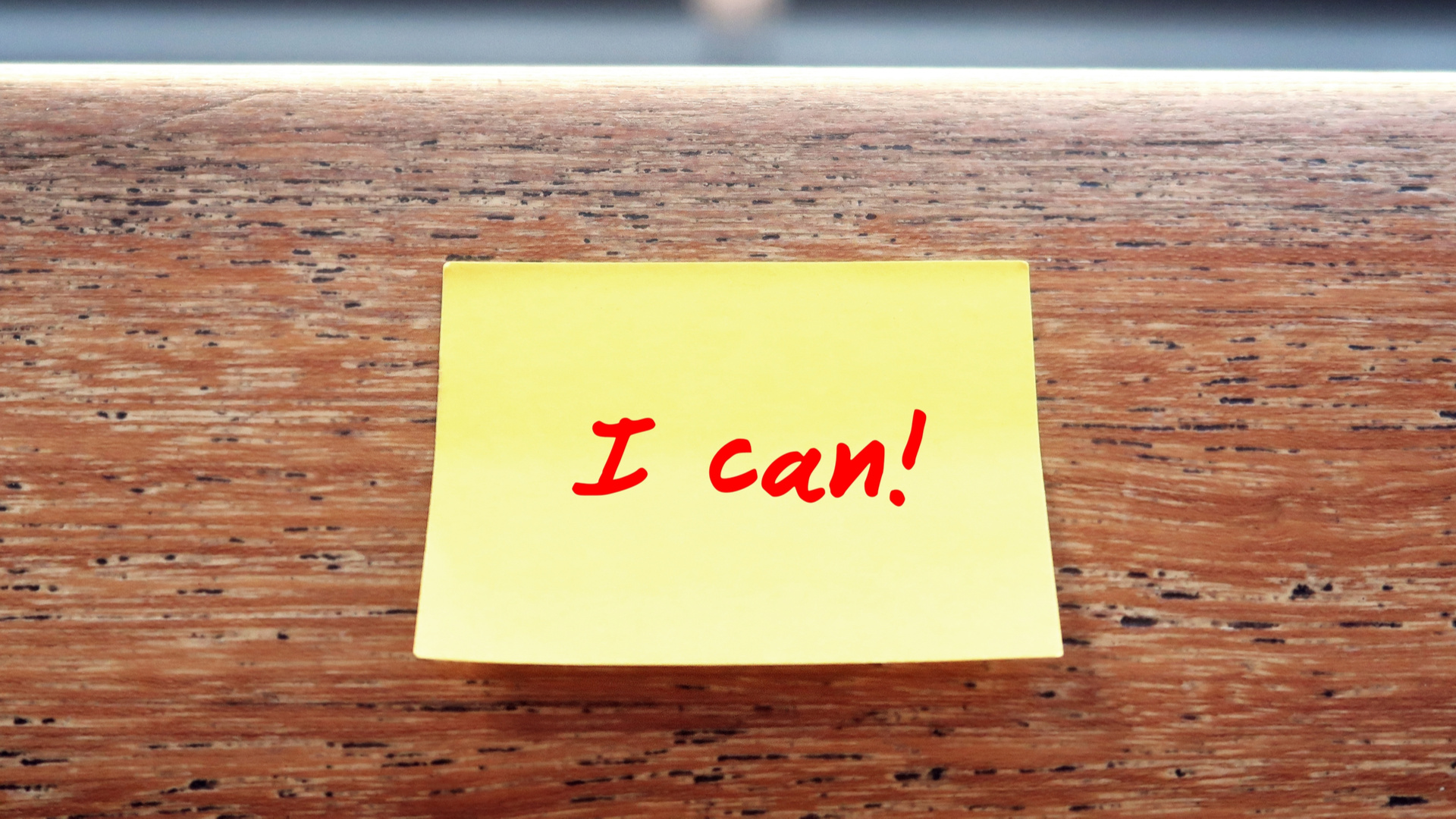
6 Tips for creating and using self affirmations
As with any exercise or new habit, be kind to yourself as you create and practice your self love affirmations. Don’t overthink it or try to solve all of your problems at once.
Here are a few tips to remember:
- Say it at least 10 times a day
- Say them OUT LOUD
- There is something powerful that happens with our brain’s wiring when we both see and hear a statement.
- Keep them simple
- A few words and a simple sentence. Not a paragraph. Why? If you make your affirmation so long or complicated, your brain will not be able to absorb the message.
- One mantra at a time
- Part of keeping it simple is focusing on one affirmation or positive change at a time. Just like you can’t clean multiple rooms of your house at the same time, you can’t try to change too many things at once. As in any great experiment, keep the variables controlled so you can really know what drove the results. In this case, one variable, one change at a time.
- Use first person: “I” not “you”
- Many people when we first discuss creating a mantra, want to use the word “you” instead of “I”. The problem is you are not trying to affirm someone else but rather yourself. Therefore, it has to be in the first person.
- Put them everywhere – on your fridge, your bathroom window, your computer monitor, your bedside table, your car dashboard, or anywhere you often go or walk past.
- For example, one period when I was trying not to drink as much wine, I put my mantra on my wine cabinet. It kept me from pulling a bottle of wine out of the cabinet.
What are some good mantras to use?
To give you some examples or maybe one for you to start with, here are a few other affirmations I have used or coached others to use.
I am successful
I can do this
I am blessed
I am courageous
I am free from alcohol
I am a good mom
I am patient and calm
I am worth it
Anything will work. Write a statement that reflects what you need to tell yourself. Where do you need a boost or a shift?
Don’t judge yourself. Just write one down on a sticky note (or ten sticky notes) and put them around the house.
If your significant other, children, friends or parents wonder what is going on with all the sticky notes, just tell them the truth. I am working on myself, and this is something I need to start believing about myself.
Maybe they will create their own self love affirmation! Just make sure they use a different color sticky note.

by Margaret Dawson | Sep 13, 2020 | True To Yourself
A politically incorrect job interview
We’d gone through the niceties as we walked to his office. Now, we kicked into full interview mode, as he pulled out his notepad and pen. The man had no idea we were about to have a conversation about work life balance.
“Before we get too far along in the process, I’d like to ask you a philosophical question,” I stated before he could get his first question in.
The man behind the desk looked at me with part shock and part curiosity.
“Okay,” he said with some hesitation.
“I’m just wondering how you think about productivity and shared success versus time in the office?” I ask.
“I’m not sure what you mean,” he said. He tilted his head to one side, reminding of a dog when it looks like you and says, “I am hearing words but have no idea what you’re talking about.”
“Meaning are you a company and a manager that likes seeing people at their desks and in the office 8, 9, 10 or more hours or day or are you okay with more flexibility in terms of hours in the office as long as expectations and results are met or exceeded?” I explain.
“Here’s the deal,” I continue. “I am a mother of young children. Each weekday, I drop them off at school in the morning and pick them up from childcare at the end of the day. Dinner together as a family is sacrosanct. I will work more hours than most people and deliver more than you probably expect. To do so, I will work early mornings, late nights, and weekends to get my job done. However, most days I will be in the office from approximately 8:30am to 4:00 or 4:30pm.”
Putting work life balance first
“I think this is a bit premature to start talking about work life balance and hours in the office,” he states.
“I understand. However, your and my time are valuable, and if that doesn’t sound like something that fits with your culture or style, I don’t want to waste our time,” I conclude.
“Actually, we are a very collaborative culture, which means most of our employees do spend a lot of time in the office, working together,” he says, as he sits up a bit straighter and smiles.
“That is wonderful,” I smile. “But I think I will give you your time back and let you focus on other candidates. Thank you for your honesty.”
I stand up and offer my hand, which he shakes without words. With that, I turn around and walk out his office door and head out through the lobby to the parking lot.
I’m not disappointed. Rather, I am calm and relieved.
I call my system work life imbalance
I am a workaholic. I love my work, and I love working. However, as my children went from toddlers to early school age, something in me snapped. Because I also love and adore my children.
I decided I didn’t need to choose between being the mother I wanted to be and the professional I also desired. I decided to work and live on my terms or what I now call my work life imbalance, where hours are fluid, but boundaries are clearly set.
Not surprisingly, this revelation occurred when I worked for Amazon.com from 2000 to 2002. I served as part of an international team opening and helping grow international eCommerce businesses.
Even then, when the children were young, I made a point of fixing their breakfast. My younger son and I would hang out at Starbucks together for 30 minutes between dropping off his brother and when his school started. We’d read the paper together or just chat about life. He became an expert at ordering my cappuccino.
I picked my children up from childcare by 5:00 or 5:30, so we could have dinner together and still have time for a walk to the playground or a game. During homework, if they had it, I might do a few emails. Sometimes, I would take a conference call with Japan while cooking dinner, as the boys relaxed or played.
However, my attempt to balance hours in the office and hours with my family became anything but balanced.
Others will not appreciate your personal boundaries
Colleagues made sarcastic remarks as I left the office at 4:30 or 5:00, such as, “Wish I could be you and leave the office early.” or “Wow, I guess marketing really is an easier job.” And so it went.
Over time, even my manager started commenting on people “noticing” my empty office chair. Work life balance appeared to not be part of this company’s culture.
Keep in mind, I was still working 10 to 12 hours per day and traveling around the world nearly once a month. Also, I met expectations and received strong reviews from everyone who worked with me around the world.
In response, I wanted to defend myself. They didn’t know I got up at 4:30 to exercise and have calls with Europe. Or stayed up late to talk to Asia. They didn’t see the weekends I spent working in the office when the boys were with their dad or grandparents.
I realized none of it mattered. This was a culture of hours in the office. Not hours productive or hours with results.
After leaving Amazon, I took my lessons with me to a new company. In fact, at the next job, I set expectations of what hours I would be in the office, and the realities of my personal priorities, from the moment I interviewed.
Focusing on productivity and joy instead of hours at the desk
This question of balancing motherhood with a professional career is the most frequent inquiry I’m asked from women I mentor or when speaking to women at a conference or networking event. Mothers have struggled with work life balance from the moment women entered the workforce.
More recently, amid Covid19, the situation worsened, with parents having to acheive work life balance from their home, 24 x 7. In response, I recently shared my opinion regarding work and time flexibility with my team. In fact, I created a simple statement or mantra for my team to use to remind us what is most important.
“Productivity and joyousness not butts in seats”.
When I stated how much I believe in people doing what is best for them, I saw absolute relief and joy emanating from the many faces on my team call. I wish my previous managers or leaders would have proactively stated the same.
Why do we so often as leaders stress one way of working and one time frame, which is the typical 9:00 am to 5:00 pm. Instead, why not create core times when teams need to meet and then allow agility around that?
I have an associate on my team who is trying to figure this out. She does two hours of early work, then two hours with her kindergarten-aged child that includes 30-minute virtual class time over Zoom. Then, it’s back to two more hours of work, and so on. She has created modules of time throughout her day. I’m sure it’s exhausting, but it’s working for her, so she can focus on one thing at a time.
In addition to all the roles mothers have played in the past, today, many moms and dads are also serving as teachers, tutors, counselors and playmates.

8 Guidelines for Achieving Work Life Balance
Over the years, I’ve established a set of guidelines I try to maintain as I continue to seek balance amid my imbalanced life. I have used many of these when mentoring other women who are early in their careers and child raising. However, no matter where you are at either stage, these are good reminders.
1. Set boundaries
Per my story above about wanting to set expectations of when I would be in the office versus with my family, this is all about setting boundaries. You need to decide what areas in your personal life are not negotiable. Maybe for you, like me, it’s dinner time. Maybe it’s early morning with the children. Or, maybe it’s Friday night “date night” with your spouse, partner or significant other. The next step could be sitting down with your family and deciding together what those moments or hours will be.
Your hardest job will be protecting those moments and keeping your boundaries strong. I find over communicating those boundaries to my colleagues and manager is best. While some may find it too personal or too much information, I would rather have that reaction than someone not understanding why I declined a meeting or don’t show up. Also, I think this sets a great precedence by leaders to give your teams permission to do what’s right for them.
2. Don’t apologize
Once you have set those boundaries, please do not apologize for doing what’s best for you and your family. As women, we are too quick to say, “I’m sorry,” about things that do not require an apology. You do not need to apologize for attempting to create healthy personal time that shows your family or yourself is a priority.
Early in my boundary setting, I apologized constantly. If asked to join a call at a certain time during my family time, I’d go on and on about how sorry I was but that was dinner time with my children. Today, I simply state that the time does not work for me, and we’ll have to find something else. If I get pushed, I again state without emotion or regret that it is family time, which is non-negotiable. There is always another time.
3. Give up the guilt
Hand-in-hand with feeling apologetic comes the guilt. Even if you succeed at no longer apologizing, you feel guilty for being the one that made everyone adapt to a new meeting time. I know releasing guilt is hard for everyone, especially those of us who grew up in households where guilt was hardwired in our religion, so I am asking you to do just that. Instead of guilt, try celebrating instead. Think about it. You just successfully put yourself and your family first. Good for you!
4. Don’t lose yourself
Between work, children, other family, and our spouses or partners, it’s easy to put ourselves last. One of the reasons for setting boundaries is to put YOU first. For example, one of my boundaries is my workout time. I may have to get up at 4:00am to do it, but that is my time and my decision. I could do it at noon or in the afternoon.
Today, I also put a boundary around my morning long beach walk with my dog, Benji. There are always meetings scheduled over this time, which is blocked on my calendar, and if it’s really important, I will take my headset and listen to the meeting. However, I still let everyone know that I will most likely not be speaking as I’m on my morning walk with the dog. If this is your challenge area, start small. Choose one item that is about carving out space and time just for YOU. Then, once you’ve done it successfully once, see if you can add a second sacred time for yourself.
5. Be kind to yourself
Just as women love to apologize and feel guilty for everything we are not doing that we think we should, we sometimes beat ourselves up for not being superwoman. Be nice to yourself. You deserve to set boundaries for yourself and your loved ones. This is probably my greatest challenge. I have amazing compassion and grace towards others and their boundaries, but I will often tell myself I am not doing enough. I should not stop working, or I should be working on that presentation instead of sitting with my husband having a glass of wine. Treat yourself as you treat others or as you want others to treat you.
6. Work on your adult relationships
As it’s easy to forget about ourselves, it’s also easy to put children and work ahead of our relationships, such as our spouses. I often found, when my children were small, that my marriage came in last too often. We worked hard to carve out time for just the two of us, and we also set rules so we did not spend that whole time talking about the children, our jobs, or household operational topics.
I will never forget a girlfriend who, when asked how everything was in her marriage, replied: “We are operationally excellent.” In other words, the bills are paid, kids get their homework done and to activities on time, the house is clean, etc. But what operationally excellent marriages lack is usually intimacy, passion, and trust. Yes, I’m talking about sex, too, ladies!
7. Let things go
This has been perhaps my hardest lesson. I have high expectations of my ability to keep my house and life clean, organized and well prepared. However, over the years, I have learned the stress of trying to keep your house perfectly clean and organized makes me a cranky person. Think about areas where you might be holding onto your OCD a bit too much.
Does it really matter if the kids spilled flour or cereal all over the countertop? Will the kids have no clothes to wear if you skip laundry one weekend, even if it means there is a big pile in the laundry room? Does cereal or pizza for dinner, AGAIN, leave permanent damage? Are those muddy paw prints from the dog going to destroy your ability to function until you clean them? The answer to all of this is, no. For me, this means sometimes my bed does not get made or the shoes are a mess in the foyer. But somehow the sun still rises and sets. So, let it go!
8. Build a succession plan
Maybe this sounds like an unrelated item compared to the others, but I learned that leaders must always build teams that can run effectively without them. The greatest joy is when I’ve seen organizations and teams I’ve built not just survive after I’ve gone but thrive and grow. Also, sometimes, when you are adhering to your boundaries, you’ll need to let others step up. Maybe you don’t have to go to that meeting at 5pm when you’re picking up the kids. Ask one of your team members. This could be an opportunity for increased visibility, networking and leadership for that person.
The point is no matter what your role or how senior you are at work, you do not need to always be the one to do the work or make the appearance. Delegate. Build a bench. Have your managers do the same. Btw, this works with your children, too. You don’t have to do everything around the house. Give them jobs.

It’s time to define your version of work life balance
When it comes to balancing work and personal life, there is no cookie cutter recipe nor is there a right or wrong way to do it. It’s whatever is right for you. However, you do need to be prepared to receive pushback. Your manager may not have this vision of success. You will have to drive the expectation setting and keep track of your productivity, regardless of when you are at your desk or not.
Also, if the person or company for which you work does not believe in people figuring out what’s right for them, especially now, then it might be time to look for a new job. I know that sounds scary, but we could have an entirely additional conversation about how to always land on your feet no matter what the economic or business climate.
For now, figure out what your balance might look like. Start with one time, and hold it sacred. See if you can keep your promise to yourself that this time is non-negotiable. Once you have succeeded at the first one, add a second.
By the way, this also works within your work time itself. Carve out time on your calendar to think, write, email, or enjoy some random chats with colleagues. My goal is no more than two hours of meetings without one hour of what I call “buffer” time.
I look forward to hearing how your balancing act is going.

by Margaret Dawson | Jun 14, 2020 | True To Yourself
The little girl bounces out of her house. Purple popsicle in her hand.
Her dirty knees reveal her busy morning playing outside.
She sits down in the small patch of grass, which is mostly dirt, between her house and the one next door. As she crosses her bare legs, a big purple drop plops on her knee.
She puts the popsicle in her mouth as she looks into the next door neighbor’s driveway, staring.
With the popsicle in her mouth, no one can see her smile. However, her big blue-green eyes are alight with joy and love.
She watches the “big boy” next door shoot baskets in his driveway. Her eyes follow his every move. It doesn’t matter if he notices her or not. She could sit watching him for hours.
As the popsicle melts in her mouth, she sings a little song in her head about the boy.
“I love this boy.
His name is Stanley.
He is playing basketball.
And I am watching . . .”
And so the sing-song melody goes.
He is much older than her. He goes to the big kid’s school.
After a while, he stops dribbling and shooting. He looks straight at the little girl and says, “see ya.”
“See ya later,” she calls back, her heart racing.
She runs back into her house, purple, sticky hands leaving spots on the doorknob as she rushes through the door.
“What have you been doing?” her mom asks, seeing her race into the house.
“Watching Stanley play basketball,” the girl says breathlessly.
“You really like Stanley, don’t you?” asks mom.
The girl pauses and thinks.
“I love him,” she exclaims with a sigh.
“He’s a big, creamy bar of chocolate, and I want to eat him up.”
Racism Didn’t Exist in My Little World
That little girl is me. And this story is my earliest memory of a “black” person. Only I did not know that description then or that the word “black” meant anything other than a color in my crayon box.
This memory came back to me recently as my country and the world are once again thrown into an age-old debate about racism.
I long for moments like the one in this story where a child is unaware of racism or really race at all. All I saw was a beautiful boy playing basketball. In fact, I remember the feeling as I watched him.
I give my parents a lot of credit, as they encouraged us to treat every person equally and to expect fairness. Growing up in the 1960’s, I didn’t even know amid this raw stage in our history what was swirling around my naive, happy life.
The neighborhood we lived in was lower middle class. Accordingly, the houses were small. We had one bathroom. However, it was idyllic for a curious, energetic four-year-old. I ran around the neighborhood, visiting different families, and eating whatever they served.
One of my favorite activities was sampling snacks and dinners at all the houses on our block. Each house had its own special smells, spices, and foods, and I loved them all. When I was older, my mother confirmed that our block was a potpourri of ethnicities and backgrounds.
No One is Born a Racist
In the house on the corner lived a large family with eight or more kids. Maria, the mom, made the most amazing homemade tortillas. One night, I sat down with them for dinner, thinking no one would possibly notice one more child at the table with so many children.
The father, however, looked straight at me and asked, “who are you?”
Being a smartass even then, I answered, “I’m one of your children. Don’t you recognize me?” Going back to that moment, I honestly think my 4-year-old self thought no one would notice.
Laughing, he said, “Of course, our blond, blue eyed child.” With that, dinner proceeded as usual, only with me stuffing my face with as many tortillas and beans that I could get my grubby hands on.
My best friend across the street, Leah, was Jewish. I didn’t really know what that meant at the time other than she received presents for DAYS around Christmas time, when I only received gifts on one day.
Also, I learned later that Leah was adopted. It never occurred to me that she didn’t look like her parents. However, now looking at a photo of us, Leah was a lovely brown color. Hispanic? Native American? Who knows. It doesn’t matter.
To me, she was just Leah. And I loved her.
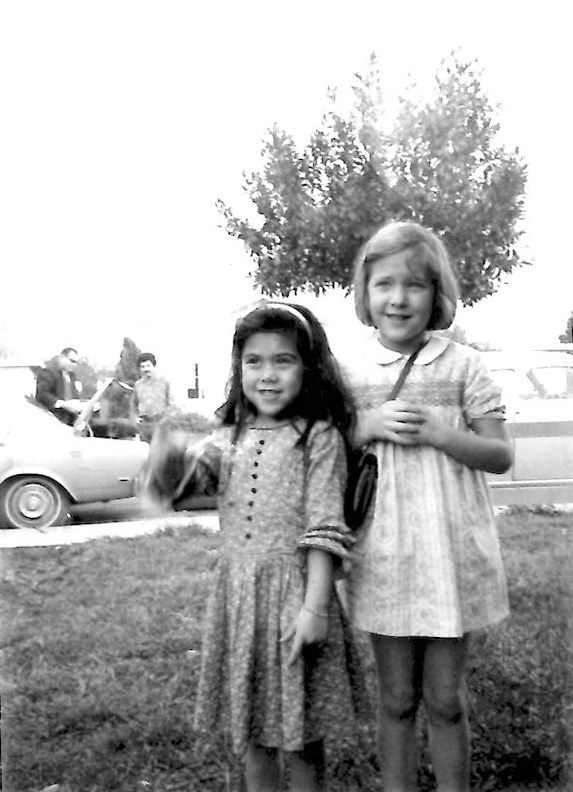
Me and my best friend Leah at around 4 years old in this very old black and white photo. Our dads are in the background.
Experiencing Racism and School Integration
The first time I encountered anything directly “racist” was when my grandmother told us she had visited her “colored” friend down the street. My little sister and I giggled as we tried to figure out what color her friend was.
“Maybe she’s green like a Martian,” my sister laughed.
Later, mom explained that grandma’s friend was black. That just confused me. Why didn’t grandma just say black then? Or why did she have to say a color at all?
Later in middle school, I witnessed racism firsthand.
The neighborhood where I went to school was mostly white and upper middle class, and predominantly Jewish. I only know this last fact because I was in middle school and EVERYONE celebrated bat mitzvahs and bar mitzvahs.
Selfishly, it riled me once again to see such a difference between my confirmation, the Christian version of becoming an adult, and the Jewish passing into adulthood that involved a major party, tons of cash, and presents.
Of course, my Jewish friends liked to remind me of the Hebrew lessons, hours of study and classes, and having to read the Torah in front of an entire congregation. Yeah, but still, those presents!
Anyway, during my 7th grade year, the school district joined the 1970’s movement of school integration. For my school, this meant busing about 100 kids to our neighborhood from downtown, which was mostly lower income and black.
The idea, my mom explained, was to give less fortunate kids access to schools in wealthier school districts that had better teachers, supplies, classes, etc.
A couple of the bused-in kids I knew from our church, which was also located in the downtown area.
Not Accepting Racist Boundaries
One day, I walked out of the girls’ bathroom to the courtyard on the other side. Immediately, a girl to my right yelled at me: “Margi, get over here.”
Following the voice, I looked up and saw a group of girls huddled together to my right. They were staring straight ahead at another group of girls to my left. My musical theater brain thought of West Side Story, as it looked like a female version of the jets and sharks.
As if on cue, a girl from the left then yelled at me. “No you don’t, Margi, you get over here.”
I stood there shifting my sight from right to left like a tennis match. As you’ve probably guessed, one side comprised mostly black girls. The other group was primarily white. I had friends on both sides.
There was no right answer here, and I started to panic.
Instead of joining either side, I ran back through the bathroom and to the office, grabbing the Principal. I knew my tattle telling would earn me grief, and possibly punches, from both sides. However, I could not stand the thought of having to choose a side or have the girls hurt each other.
Honestly, I did not understand the boundaries those girls drew then, and I don’t understand them now.
Why Can’t We all Get Along?
I do not tell these stories to be righteous. I’m sure I’ve said stupid things and not been sensitive to others. During a recent company meeting, I learned about some phrases of which I never realized were dismissive or biased. As a white woman, I have no idea what it’s like going through life with dark skin.
Rather, I tell these stories because recent events have me thinking back through my life and reliving racism through the eyes of a child.
Frankly, I can’t believe we are still facing the issues of my youth. In my fantasy world, I dreamed we would all be living in harmony by the time I was an adult. I don’t understand why our country cannot break this cycle of racism.
How can one human look at another human and see anything other than another human being?
Clearly, I am still naive. But mostly, I’m just sad and angry that we can’t all just fucking get along.
Trying to Understand the Black Experience
Before I married, I dated a couple of black men. Only then did I have a glimpse firsthand of what non-white people deal with every day of their lives.
For example, one time when my boyfriend and I were invited to a wedding in Boise, I suggested we drive. Immediately, he responded, “No. We will fly into Boise, go to the wedding, and fly back out.”
I did not understand. He explained that driving through Eastern Washington and Idaho would be too dangerous for him, especially with a white woman in the car with him. I remember thinking, “Oh, come on, we don’t live in the South.” However, other black friends validated his fears.
Wherever we went, people of ALL colors stared at us. In restaurants, parks, coffee shops. I grew accustomed to the evil eye directed at me by some black women and the head shakes by white men. Or just the anger directed at us by random people. None of this made sense to me. Why did anyone care who I dated or slept with? What business was it of theirs?
The only time I ever felt normal walking down the sidewalk holding the hand of my black boyfriend was in New York. There, we blended in with the cacophony of sounds, skin colors, and languages. It felt freeing and safe.
Throughout my life, white men have asked me, “Why do you love black men so much?”
In response, I usually sigh and reply, “I love men. Good looking, strong, healthy, funny, smart men. Period. Color has nothing to do with it.”
Believing all People and Colors are Beautiful
Okay, I will admit, there are times I see a black man, and I think exactly as my 4-year-old self did watching Stanley play basketball. I think, “What a beautiful man.” But is it because he’s black? I think it’s just because the man is wicked good looking!
Although, to be honest, it does happen more frequently with black men than other races.
One time at a Mariners game, I had the fortune of sitting in the front row behind the on-deck batter’s circle. Carlos Delgado, with the Toronto Bluejays, entered the circle to warm up with a few swings. His back was to me, and all I could do was stare at his amazingly beautiful body, especially his butt. (Yes, men, we look at your butts. Get over it.)
Without realizing it, my mouth emitted a sound that was something like, “Yummmmmm.”
Delgado immediately turned and looked straight into my eyes, and shocked me as he said, “Thank you. You’re not bad yourself.”
My heart stopped beating for what felt like a full minute. He then proceeded to go up to bat and hit a rocket into the field, securing a double.
How could any woman (or man for that matter) not think Carlos Delgado is a beautiful specimen of a human being?
I am a Mama of all God’s Children
I am a mother of several boys. When I heard that George Floyd called for his mama, my heart broke. That could have been my son.
No one’s baby should die that way, and I wish one of us mamas could have held him in our arms.
I am a mama of all God’s babies. I believe that. You want to see me experience pure joy? Put a baby in my arms.
My wish is that all mothers come together and unite to end this violence against our babies. We should grieve, be angry, and try to protect the life of every mother’s child. Regardless of their age, race or gender.
The next time you see someone different from you, just think about the fact that he or she is somebody’s baby.
Now, I end where I began. With a child’s voice.
Jesus loves the little children
All the children of the world
Red, brown, yellow
Black and white
They are precious in His sight
Jesus loves the little children
Of the world

by David Boyle | Nov 8, 2019 | True To Yourself
May 2 1997: Political Nature or Nurture?
I wake up confused. Much the same way I fell asleep.
The Labour Party under Tony Blair won yesterday’s election, ending 18 years of Conservative rule. Mind you, not just a basic win but rather a landslide victory.
The entire political landscape, and society, has shifted fundamentally.
Not to mention I remain guilt ridden, as I did not even vote. I felt unable to act from indecision and lack of confidence. As a full-time student, I just simply did not have time to come to an informed opinion on tax policy, job creation, social benefits, and the myriad of other issues that were at play.
Some of my friends are distressed by this shift in leadership. However, many more are ecstatic.
I don’t understand either polarizing reaction.
Like my friends, the electorate at large somehow not only formed conclusions in order to vote but ones in which they are also absolutely passionate about.
However, more confusing is how my group of friends, who are all similar in culture, educational background, and family history, are politically opposed. How do people so much alike come to radically different conclusions about the best way to solve our country’s problems?
Shouldn’t this common environment lead to common political views?
Little did I know at that moment that there was literally not a single person on the planet that knew the answer to my questions.
In fact, it would take the sequencing of the genome three years later, the mass popularisation of personal genomics 18 years later, and a huge army of researchers tracking down tens of thousands of identical twins separated at birth to help me understand my current, 1997 confusion.
Yes, a scientific answer to my questions would take more than 20 years to emerge.
2019 – 22 Years Later: Science to the Rescue
Today, I know the answers. And, frankly, they are shocking.
The answers to my questions are counter intuitive, and point more to nature than nurture when it comes to our political beliefs and preferences. So no matter how you grow up, chances are you will vote (or not vote at all) just like your mum and dad, as opposed to your mates.
However, before we dig into the answer, let’s define some terms in this Nature versus Nurture debate to make the answers easier to understand:
Nature: refers to the role our inherited genes play in making us who we are.
Nurture: refers to anything else, meaning non genetic, that makes us who we are like our family, our environment, and our friends – but not because of our inherited genes and sometimes because of pure, random chance.
Variances: We will look at the role that Nature and Nurture play in explaining the variances we see in a normal population. We will ask what percentage of the variance we see across people in a particular trait is due to Nature versus Nurture. These are population averages, and so individual mileage will vary.
Genes are more important than you think
The first thing I learned is that science proves our genes play a much bigger role in making us who we are than almost anyone believes. On key dimensions like general intelligence, school achievement, weight, and stomach ulcers, science shows us that our inherited genes determine between 50-70% of the variance we see in the population. That’s huge, but contrary to popular belief.
When surveyed on the topic, the UK population estimated that our inherited genes determine just 30-40% of the variance across these measures. People think most of the variance is due to Nurture, when actually it’s mostly due to Nature.
However, the UK population is not alone in thinking nurture beats nature in political leanings. Even the most brilliant minds believe in this nurture bias. Recently, I attended a conference with fifty of the smartest people I know, ranging from astrophysicists and authors to data scientists and successful investors. I surveyed them on this same topic.
The result: they ranked Nature slightly higher than the general public, but still underestimated the importance of genes by an average of 30 points versus the scientific consensus. Even a group of mostly analytical, technical experts put much more emphasis and belief in nurture versus nature when it comes to why we behave or act in the ways we do.
Politics is in our genes
Political ideology is one of the most heritable traits there is. 58% of the variance we see in a population is because of our inherited genes. This explains why so many people around me in 1997 were seemingly jumping to conclusions about the policies they wanted. Their genes predisposed them to be favourable to one policy over another.
Scientists started to realise this only around 2005. Until then, political scientists were mostly unaware of the heritability of social attitudes.
It is fascinating to note that while the overwhelming majority of the variance we see in political ideology across the population is because of our inherited genes, the overwhelming majority of the variance we see in political party identification is not. In fact, about 95% of the variance in party political identification is because of Nurture; in other words the social and environmental factors like parenting and peer groups.
One conclusion I draw from this is that campaigns can likely pressure people into political party identification, but will not really change a person’s underlying political ideology.
Also, the correlation between a person’s ideology and his or her party identification is not as high as you might imagine. For example, my mother voted Conservative because my father did. We were a Conservative family.
However, I’m convinced her political ideology didn’t align with her party identification. The statistics above suggest this is common.
A more recent example is Brexit, where many people seemingly voted against their self-interest and even their party affiliation. Likewise, in recent American elections, it seems to me that many people voted based on reactions to specific campaigns rather than based on their core values.
Campaigns (nurture) are shifting people’s behaviour, even if they aren’t shifting people’s underlying political ideology, which comes mostly from nature.
Mythbusters: Politics according to science
On this scientific journey, I learned three big myths that nearly everyone believes are true.
Let’s walk through them.
Myth #1: Your psychological traits determine your political ideology. FALSE
There is a common assumption that a person’s psychological traits predict a person’s political ideology. This is false.
There are two personality traits that play a role in helping to predict a person’s political ideology:
- Openness to new experiences predicts liberalism
- Conscientiousness predicts conservatism.
The correlations are modest, and most personality traits are “neither significantly nor consistently related to political values,” to quote Robert Plomin in Blueprint.
I think these two modest correlations are the reason many people believe that political ideology is determined by personality. The press love to equate ‘there is a relationship between two things’ with ‘one thing determining the other’. This is shoddy logic. There are many things in the real world that have a relationship, but where one doesn’t determine the other.
To quote Robert’s book: “The overwhelming majority of genetic influence on political traits are unique to the traits, and not accounted for by personality, morality, or other psychological constructs.”
Does this mean that Nature evolved political ideology as a separate and advantageous aspect of who we are? Fascinating! The reasons why are a worthy topic in and of themselves for a future investigation.
Myth #2: A personality trait is driven by a single gene. FALSE!
When it comes to personality traits, political ideology or most physical traits, it is almost never a single gene that determines where you sit on the spectrum. It is actually thousands of genes that determine where you are on the spectrum for any one trait. Each of which plays a very small role in influencing the outcome.
Again, I think people believe in ‘a gene’ for things because of faulty logic from news reports. It is easy to confuse ‘scientists have found a gene that influences X’ with ‘there is a gene that determines X.’
Myth #3: Nurture controls most of the outcome. FALSE!
 I work hard to be a good parent. For example, I make a point to read to my kids, help them to care about school achievement and, most of all, to be good, kind boys in a world that can seem to be desperately lacking good, kind male role models.
I work hard to be a good parent. For example, I make a point to read to my kids, help them to care about school achievement and, most of all, to be good, kind boys in a world that can seem to be desperately lacking good, kind male role models.
Although they’re only 7 and 9 years old, I can see good, kind, smart people emerging. Of course, that makes me believe my efforts are working!
Not so fast!
Actually, science says my efforts likely don’t make that much difference.
Proof point: Siblings growing up in the same home grow up to be as different in personality and physical traits as siblings that grow up in separate homes. What?
It turns out that parenting is mostly about doing things your genes tell you that you should do, and your kids’ genes predispose them to be receptive to that input. So, for example, reading to my boys likely wasn’t Nurture at all. My genes predispose me to think that’s a good thing to do, and the boys enjoy reading and being read to because of their genes.
Furthermore, 60% of the variance in school achievement is directly tied to inherited genes.
Perhaps I can at least take credit for the 40% hard work?
What do we do with this information?
I’m sure you are reacting much the way I first did. With disbelief or even a bit of despair. How can it be true that our inherited genes play the majority role in determining who we are?
Every piece of research shows that we all believe Nurture outscores Nature by a large percentage, in spite of it not being true. We can’t change this reality.
So what can we do?
Perhaps we use this information to have greater empathy towards others not like us and to take a broader perspective. For example, this scientific data tells me I have even more privileges than I knew. I am a white British male, and I am blessed to have genes that make me more likely to read, strive for further education, work hard, and be a good parent.
This new knowledge also helps me understand our political differences. I try now to understand these differences rather than debate them or ignore them. Perhaps we could all step back and take time to appreciate our differences that we are given at birth. Science could be the key to a kinder, less polarized planet.
Source material:
I’ve included many links in my article, but I also leveraged information in a ton of scientific papers, a Behavioural Genetics textbook, and the easy to read and brilliantly written book Blueprint by Robert Plomin, a psychologist and geneticist best known for his work in twin studies and behavior genetics. Also, I highly recommend Chapter 14 of the Oxford Handbook of Evolution, Biology and Society covers Genetics and Politics.

by Margaret Dawson | Sep 18, 2019 | True To Yourself
I wake up confused. There is just a hint of light coming through the window amidst a cloudy, dark sky. But there’s enough light to get through the crack in my eyelids.
You see, since I was a baby I sleep with my eyes not quite closed all the way. My mom says it used to shock her because I look dead when I sleep. But for me it means the smallest bit of light can keep me from falling asleep or cause me to wake up. Like now.
What time is it? I wonder.
Then I panic. Oh shit! Am I late for a meeting?
I grab my phone from the bedside table and quickly rub my finger over the biometric panel to turn it on. 6:46.
Why didn’t my alarm go off? Wait, what day is it?
I close my eyes to get my bearings and thoughts.
It’s okay. It’s Saturday, I realize.
Exhaling a deep-held breath, I stare at the ceiling. I should get up. But I feel unmotivated to move. My body feels heavy. And I feel like I could sleep more. However, I know sleep will elude me thanks to that adrenaline burst from thinking it was a work day.
I analyze how I’m feeling. Am I depressed? I wonder.
I don’t know, since I’ve never been diagnosed with depression. But I think it must feel similar. A numbness like you wish the world would just disappear.
What happened to that jump out of bed and greet the world Margi I used to know? I ask myself.
I AM EXHAUSTED AND UNMOTIVATED
My mood has not shifted since last night, when I changed plans to go out with a friend and stayed home by myself instead. Ate pizza, drank wine, and watched two chick flicks that made me bawl my eyes out.
This heaviness has been weighing me down for weeks now.
“Get UP!” I say out loud, forcing myself out of bed.
As I stand up, I see two piles of clothes near my dresser. One dirty pile and one clean. It’s always a bad sign when I don’t have the energy to put dirty clothes in the hamper or put away the clean ones. I sigh but don’t make any attempt to pick up the clothes.
I can at least wash the sheets, I tell myself.
Stripping the sheets off the bed, I throw them in a pile near the door on my way to the bathroom. I’ll put them in the washer when I go downstairs.
I pull out the scale and stand on it to get validation that this heaviness is not just figurative. 149.9 pounds. I just stare at the number. I’ve been flirting with 150 for weeks now, somehow always managing to get it back down to 145 and then back up to just under the ominous number.
Ten pounds over my target weight. I know for 5’10”, 150 is not that big a deal, and I’m sure there are people reading this saying, “Fuck you, Margaret.” It’s all relative.
However, if you’ve been athletic and thin your whole life, then being ten or twenty pounds over weight feels like crap.
MAYBE IT’S POST-MENOPAUSAL GRAVITY
Frankly, the situation would be worse if not for the fact that I consistently eat healthy. For ten years or so, I have maintained a gluten free, mostly lactose free, paleo-ish, Bulletproof diet (okay, other than maybe the wine).
Am I perfect? No. But, I eat mostly whole, natural, organic foods, with only good fat and carbs. Accordingly, I adhere to all the politically-correct characteristics: free range, grass fed, gluten free, paleo-friendly, non-GMO, low or no sugar, and definitely no high-fructose corn syrup. Lord, I’m pretty sure a sip of that sends you straight to hell.
I look at my body in the mirror. My three ½-inch scars from my hernia surgery look red and irritated this morning, just like my mood. Other than that, it’s not horrible. Boobs are still mostly firm. My neck isn’t too wrinkled yet. Full head of hair.
But the inner critic takes over. It’s clear everything is moving down. Gravity is taking over. Plus, I am definitely getting a belly. I have that 3-months pregnant look.
Then, as I turn around to look at my body from another angle, I see the real issue. No wonder my pants are all feeling tight. My butt, love handles and hips seem to be taking on a life of their own.
I snort as I hear the lyrics to that classic Baby Got Back song in my head: “I like big butts, and I cannot lie!” Definitely more love to hold onto! Well, at least I haven’t completely lost my sense of humor.
MY LIGHT IS NOT SHINING
I need a walk on the beach to get out of the house. Breathe the salty, misty air and feel the wind in my face. Get my blood pumping.
I’ve barely left the house all week. Up at 4 a.m. every morning with 4:30 or 5 a.m. calls starting the day and then in meetings all day. Finish up 12 hours later, only to be ready for a glass of wine. Or two. It’s a vicious cycle.
Then it hits me. I have been here before. I know what this is. I’m not depressed. I’m just in one of those dark cycles. I have let my light fade. My body and mind are just like the weather outside, where the sun is just a muted soft yellow glow barely able to shine through at all – stuck behind a sky full of gray clouds.
I am not doing anything for myself to shine my light. All I’m doing is getting up, working all day, having a drink and eating dinner, and going to bed.
I know this dark period is nowhere near as bad as the first time, which culminated in me curled up in a ball on the kitchen floor crying. Little did I know at that time I was pre-menopausal and suffering from major hormone deficiency, in addition to having developed a gluten intolerance and hypothyroidism. All of which resulted in significant weight gain, inflammation, stomach issues, and lethargy. It was not a light-filled time.
HEALTH, DIET AND EXERCISE PLAY A PART
I think back to that first meeting with my naturopath, who looked shocked as he reviewed my blood test results, showing everything going on with me.
“Wow,” he said, shaking his head. Most people would not even be getting out of bed with the combination of things wrong with you,” he said. “Let alone be raising children and working 60 hours a week. No wonder you look and feel like shit.” (yeah, he was my perfect doctor soul mate.) Just imagine how great you will feel when we get all this fixed,” he assured me.
He was right. Over the following six months, I completely changed my diet, started hormone treatment, and began finding the right medicine for my thyroid. I started losing weight and gaining energy, which gave me the motivation to work out again.
That period also launched my whole mission to rediscover and shine my light, because I realized it wasn’t just physical issues that were affecting my health and outlook on life. I had lost something deeper. Something fundamental to who I am.
Since then, I’ve had these shorter, less daunting periods I call my dark episodes. They are not as dark, don’t last as long, and are easier to climb back out of.
Frankly, they are also good reminders of why we have to keep doing the hard work to be true to who we are and not let the world swallow us up.
REMEMBERING WHAT BRINGS ME JOY
I do a mental checklist of all the things I started doing again during that period of rediscovery; things that bring me joy:
- My music and singing
- Driving my mustang, a little too fast, on long drives by myself
- Writing – not for work, but for me
- Horse riding
- Spending time with girlfriends
- Hanging out with my children
- Romantic time with my husband
- Working out and feeling strong
- Walking on the beach
Then, I start thinking about which of these I am successfully doing now.
The reality? Not many.
And too few of them all.
When was the last time I took the pony out for a drive on the winding coastal highway? It’s been months.
I almost went up to the piano last night after watching a movie, but then just poured myself more wine and hit Netflix for a second film.
I did have a girl’s night out this week with a new woman friend here in town who I really like. That did help. And we both said we needed to do it more often.
My hubby and I are mostly good at remembering how to connect and discuss our relationship, but we could definitely do better. We’ve let some of the habits we learned from the Marriage Workshop we took years ago drop off. More sex always puts me in a better mood, and I know that suggestion will receive strong support from my partner.
Overall, if I’m to be honest with myself, I’m letting work consume me. With all the kids out of the house, it’s easy to let my boundaries slip.
FINDING LIGHT THROUGH INTENTIONAL ACTIONS
Most importantly, I have no set workout routine. Or a routine of any kind. Traveling 50 percent or more of the time doesn’t help.
As if I need a reminder, I look at my arms in the mirror. Not long ago, I had those amazing sculpted muscles. Not quite Michelle Obama’s arms, but some pretty sleek guns. Now, I see old lady flabby skin emerging underneath my arms. I remember telling my former personal trainer, Hector, that my goal was to never have flabby old lady arms or a sagging butt. I miss Hector. He kicked my butt in a good way, plugging into my competitive spirit, and had me doing 5 pull-ups within 3 months of training. I bet I couldn’t even do one pull-up right now.
I know I’m not the only one who’s noticed my dimmed light. Some of my team members at work have even asked me if I’m okay. My husband sees it, and I’m sure he feels it.
Okay, enough self analysis for the day, I tell myself. It’s time for action. You know what you need to do to get that light back.
First step, get dressed and get your butt outside, walking on the beach. I remind myself how blessed we are to be living on the ocean in this beautiful house.

A POWER WALK ON THE BEACH
Dressed in my ninja black waterproof sweats and jacket, I grab my neon green baseball cap to cover my bed head hair. I put in my waterproof earbuds in and find Pandora on my phone – a song from Wicked fills my head. Perfect.
This is definitely a day for my waterproof hiking shoes, as it’s been raining for two days now at the beach.
Opening the garage door, I walk outside and pull on my neoprene waterproof gloves. I start taking deep breaths as I meander across our stone path toward the beach trail, already feeling better.
The song switches to Dr Dre’s “I Need a Doctor”, which seems appropriate. The hip hop beat gets my feet moving faster and my arms pumping. By the time I reach the hard sand near the waves, I am traveling at my power walk pace.
It’s raining lightly, but the drops hitting my face are therapeutic – they are waking me up.
The beach is mostly empty except for a couple of other locals walking their dogs. I need a dog, I say in my head for the thousandth time this year. Once you stop traveling so much you can get a dog, I remind myself of the deal my husband and I have made. But every time I walk on the beach, I miss the dog I don’t have.
FINDING LIGHT TAKES HARD WORK
A new song begins, so quietly at first I don’t know what it is. But as the lyrics get louder, I smile and start singing along. Small tears escape as the words from the Greatest Showman become the truth of the moment.
From now on
These eyes will not be blinded by the lights
From now on
What’s waited till tomorrow starts tonight
Tonight
Let this promise in me start
Like an anthem in my heart
From now on
From now on
I start creating this blog post in my head and can’t wait to get home and let my fingers take over for my brain. When this happens, I usually don’t stop typing for 30 minutes, as if I’m possessed with a story that just must be released.
I return home after a four mile walk on the beach, and I am revived. But I know there is work to be done today and this week (and the rest of my life) to get my light back on the shining path.
Then, as if the universe hears my plea for help, a colleague calls me.
“I just want you to know what an incredible leader you are and what a positive impact you’ve had on me and the company,” he says.
WTF? Who says that? I think, as his words bring tears to my eyes. I am speechless. How does the universe always know what to send you when you ask for help?
While talking to him, I get text messages from two of my sons and a young woman friend in town. All of it reminds me why I am here. And then, my husband calls to let me know he’s on his way home. He’s been out of town for a couple days playing golf with friends.
With silent thanks, I pour myself a strong cup of coffee, sit down at my laptop, and start writing.
LIGHT AND DARKNESS MOVE IN CYCLES
My day ends with my young girlfriend and her boyfriend coming over for a make-your-own pizza night. A favorite dinner with our own children that we haven’t done in too long.
Nurturing others always takes me out of my own head and problems. We are laughing, cooking, and eating yummy caesar salad and our own private pizzas.
As I go to bed, I lie awake listening to my husband’s snores, the waves, the wind and the rain. I take some deep breaths. I forgive myself.
Tomorrow is a new day and another chance to heal, learn, and shine.
I know I will have more dark days, weeks or months. Life happens. We are imperfect. However, I also can have more self-awareness, and not let them continue for so long. Listen to the cues around me. Watch for signs of slipping back down into the darkness.
GIVING YOURSELF PERMISSION TO SHINE
To rediscover and shine your light doesn’t just happen. It takes intentional thoughts, actions, and words. And humility – to recognize and embrace our failings.
But most importantly, it takes forgiveness of yourself and others, so you can start over, move forward, and be that person in all your glory you were meant to be.
Shine on!!
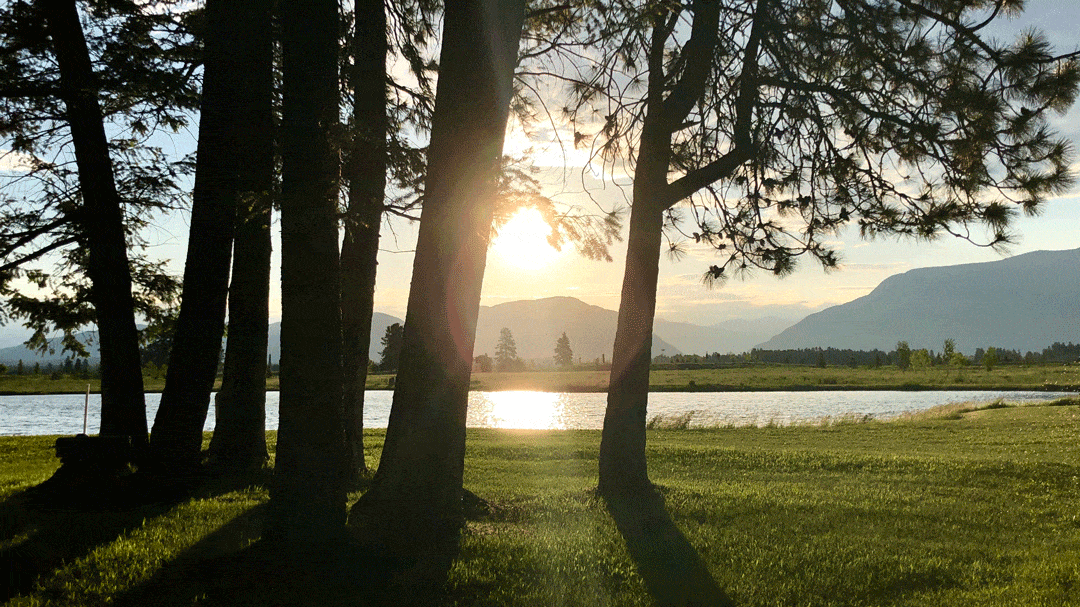
by Margaret Dawson | Jun 12, 2019 | True To Yourself
How a writing retreat taught me more than how to write
Last week, I stopped. Jumped off. Unplugged.
And then, I dived. Head first into a word-infested lake haunted by legends. Not knowing if it was one of those shallow bodies of water with jagged rocks just below the surface, which I can’t see. Would I crack my head open and die like that tragic love story I watched on some flight?
No. This lake was deep, and she welcomed me into her waters like a warm embrace. Not like the temporary warmth created by some unaware 8-year-old boy in the community pool that slowly dissipates from the chlorine. This was all-encompassing warmth wrapped around me like my grandma’s old woven blanket that I tuck around my legs when I read on the couch.
But, let’s be honest, I was terrified of this declaration.
Woman in tech, leader, mentor, coach, manager, wife, mother. No problem. I can write and present on open source and digital leadership all day long and not break a sweat. But this? This was personal. This crawled into my very soul. My reason for being. This was the bird I caged and lost the key, or so I thought.
“The moon put her hand
over my mouth and told me
to shut up and watch.” *
With trepidation, I watched. As each of the six women entered the room. Fawn eyes searching and fearful just like mine, testing out our new-born legs on the dew-covered grass nestled in the Montana mountains.
The community of women joining me on this journey
Seven strangers, our homes and identities left behind. Hoping to spark, rediscover, or fan our writing flames. All of us lugging our heavy baggage into the bunk room, with dreams of leaving with a lighter load. But unsure of what lay ahead.
But, wait. I know these women. I recognize them. Soul sisters on this journey.
For five days, we laughed, cried, walked, nourished, talked. Of course, we also wrote. Oh, did we write. Like we were possessed by some inner Steven King on a deadline to publish our two hundredth novel.
Yet somehow, it was easy. No, not easy. It was at times very hard. But, each word, each exercise, each painful reading out loud of our work released something. Until our words swirled in the Montana air like a Cottonwood tornado.
I can’t believe this. Even in my beautiful memory of this writing retreat, it’s there. In the back of my mind. That fucking “Let it Go” song from Frozen. Connie rolling her eyes when I sing it unknowingly for the millionth time. However, to be fair, it is the perfect depiction of what we did.
We let it go.
Words leaping from our hearts and our pens, as the now dog-eared notebooks struggle to keep up.
Each piece, an awakening. A celebration.
Learning from an author and master
All under the guidance of our teacher, mentor, and editor. At times, disciplinarian.
Yes, those of you who know me will not be surprised that I spoke out of turn. I challenged her. I celebrated someone when I wasn’t supposed to. We giggled like 8-year-old school girls as we waited for class to begin, knowing we were supposed to be in meditative silence.
But, I followed. I put down my staff and let someone else lead us up the mountain for a change. She earned it. This New York Times best selling author. She bears the scars of publisher rejections, editor notes in the margins, and standing in book stores waiting for others to treasure her book and maybe even say hello.
All this she gives us. And more. With an open heart and open hands, holding us safe while we write past the fear of exposure.
Rediscovering my love of writing
I came to this Haven writing retreat to work on my book. It’s a teaching memoir I’ve kept at bay for several years, even as I spoke to hundreds of people worldwide about its hypothesis, stories, and dreams. The premise: empowering everyone to discover and shine their own true light. Being true to who we are; the beautiful, unique creatures we were born to be.
Yes, the irony is not lost on me. I coach people on learning to shine their light on themselves and others, struggling every day to be true to who I am and shine my light.
I realized at this retreat that the core of my light and who I am is writing. However, writing has taken a back seat in this Fastback life of mine for many years.
Over this week, I remembered how I used to love writing as a child. For example, I wrote poem books for Christmas presents. Each poem crafted and then illustrated with simplistic drawings on colored construction paper, stapled together and wrapped in Santa paper.
I wrote songs and then created simple chord progressions on my guitar to accompany the words. Like this one, I still remember, even though I wrote it when I was in the third or fourth grade.
“I was once just like you, with nothing in the world to do.
And then I learned what life was about and sang a song.
Sing a song, a million times or one. Sing a song, oh come along.
Sing a song, it will do you good. Sing a song, I wish you really would.”
Maybe my wisdom peaked at nine years old. Such a simple, childish song. Yet, so wise. I knew then life was all about singing your own song. Whatever the song is.
Giving thanks for this writing retreat
Thank you, Haven.
Thank you, soul sisters. You amazing creatures.
I can’t wait to celebrate your words and your lives.
I also hope you enjoy one of Laura’s favorite poems, which she shared as part of the ritual of Haven:
WILD GEESE
By Mary Oliver
You do not have to be good.
You do not have to walk on your knees
For a hundred miles through the desert, repenting.
You only have to let the soft animal of your body
love what it loves.
Tell me about despair, yours, and I will tell you mine.
Meanwhile, the world goes on.
Meanwhile the sun and the clear pebbles of the rain
are moving across the landscapes,
over the prairies and the deep trees,
the mountains and the rivers.
Meanwhile the wild geese, high in the clean blue air,
are heading home again.
Whoever you are, no matter how lonely,
the world offers itself to your imagination,
calls to you like the wild geese, harsh and exciting —
over and over announcing your place
in the family of things.
ALSO RECOMMENDED
* Braided Creek: A Conversation in Poetry: Jim Harrison, Ted Kooser

by Margaret Dawson | May 29, 2019 | True To Yourself
Core Values are Key to Staying True to You
I have done horrible things in my life that I regret. For example, I lied, and I cheated. Admittedly, I hurt other people and sinned. As frequently, I hurt myself.
If I could, I would go back in time and redo it all. However, as we know, that isn’t possible.
Therefore, I choose to forgive and ask for forgiveness from others.
As a Christian, I ask God for forgiveness. While sometimes hard, I forgive other people who hurt me or influenced me negatively. Sometimes that means forgiving the same person multiple times. Perhaps most importantly, I forgive myself.
I am able to forgive, because I now know these actions, thoughts and words do not define me. It’s not who I am.
Years ago, I realized that many, if not most, of these things happened because I had no idea who I was at my core. I was not grounded in my core values. In fact, I don’t think I honestly ever thought about core values.
I did not have a strong internal compass to filter my thoughts and actions through.
Consequently, I acted poorly.
Good people often do bad things if they don’t have a compass
Overall, I was a good person. My parents taught me right from wrong. I went to church, and I believed in God. At least intellectually, I understood the 10 commandments. As a child, I followed the rules and most people would have called me a “good girl.” In fact, I still today have trouble jay walking or crossing the street when the walk sign isn’t illuminating.
Most of the time, I stayed inside the lines of societal rules, literally and figuratively.
However, I constantly saw (and still see today) good people do bad things. Or bad things happen to good people. Some of the biggest hypocrites I knew were also supposedly “good Christians.”
I experienced a lot of “do what I say, not what I do.” Therefore, those boundaries of right and wrong were often blurred, and not so black and white. And, I was one of those good people who sometimes did bad, questionable, or hurtful things.
Core Values Hurt by A world of NO and Do Not
Ever notice that most religions and rules tell you what NOT to do. No parking, no burning, no trespassing, do NOT commit adultery, don’t walk on the grass, don’t swear, and I could go on and on.
Research has shown that children hear the word “no” some 400 times a day. 400!!! As you can imagine, that’s probably up to 400 times more than they hear the word “yes.”
Experts say this constant hammering of “NOs” causes more than just disappointment, sadness or anger. It freezes your brain. Hearing no all the time causes you to shut down emotionally.
Whereas, a strong yes input drives curiosity, stability, positivity, and, most importantly, authenticity.
Dr. Dan Siegel and Tina Payne Bryson write about this yes and no brain phenomenon in their book, titled, “YES Brain: How to Cultivate Courage, Curiosity, and Resilience in Your Child.”
“There’s a positive approach to life that comes when you look at the neural circuitry of the yes brain, and the way you learn a challenge is an opportunity to learn more, not to collapse in fear,” Dr. Siegel said in an interview with Mindful magazine.
How do we become more positive and put our brains in a state of “YES?”
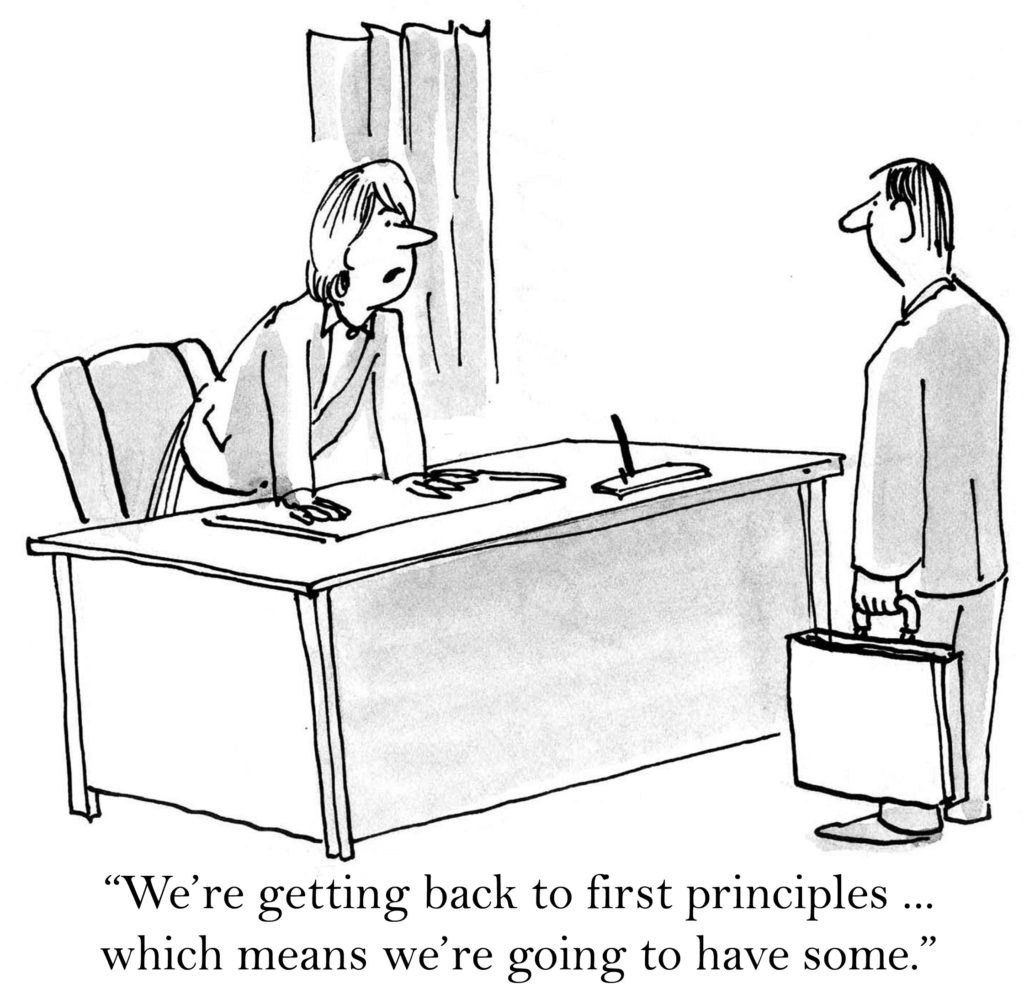
How do we focus instead on YES and DO?
What if we focused more on the DO’s than the Don’ts.
I think it all starts with being clear on who we are and our core values.
Core values are the fundamental beliefs critical to who you are. Many people define core values as guiding principles that help a person determine right from wrong.
I think they are ideals that you hold to be true. When you adhere to them, you are the best person you can be.
Core values keep you on the right path and help you fulfill your goals.
Your core values do not need to be the same as another person’s, and yours may evolve over time.
Without clearly knowing or articulating your core values, it’s easy to make decisions that are NOT in the best interest of yourself and others. It’s easy to hurt yourself and others as well, because you are acting out of selfishness and unawareness.
You are not grounded. In fact, you have lost your way.
Typical core values include honesty, loyalty, or sincerity. You could think of the ten commandments as a list: do not cheat on your partner, do not kill someone else. Basic core value stuff.
However, as I say above, I prefer to think of core values as those YESes; those things that we DO when we are letting our true light shine. Love others. Value all lives. Be loyal to my partner.
My Core Values
Some of my core values are:
- Authenticity
- Family
- Empathy
- Constant Growth
- Curiosity
- Humility
- Nurture
- Impact
With my core values as my compass, I always tell the truth. I put my family first. In addition, if I’m grounded, I choose to have the light-shining Margaret show up for others. Core values enable me to remain true to the best version of me.
Take a moment to think about and write down yours. Don’t over think it or edit yourself; write down whatever comes to mind.
Then, do more self reflection on this. If you pray, then pray about it to help you define them.
Ask yourself or God these questions: What is fundamentally important to me or core to who I am?
If someone made me do something uncomfortable or I acted out of character, what core value would I be breaking?
You may only have two or three core values. That is perfect! There is no right or wrong number, just words or statements that feel core to who you are in your heart.
Come back to this list from time to time and see if you are staying true to your core values. Alternatively, write down new ones you’ve identified as being vital to being YOU.
Declaring Your Core Values
Write down your core values and a statement of why this is so important to you.
As you make decisions and go through each day interacting with others, try to think about whether you are behaving and living according to your core values.
If you find you often are not, then it is probably time to make some changes, either in your core values, or, more likely, in yourself.
Don’t worry if what you wrote down is not perfect. You will learn along the way.
If you are like most people, as soon as you write the words, you start to immediately question whether they are right. Some or all may be in direct conflict with the “you” currently showing up or the life you are currently leading. That is OK!
Don’t judge what you’ve written down.
Also, let the words live with you a while. Just capturing those core values might give you a sense of relief or even an “ah ha” moment. It did for me the first time, and it does every time I take a moment to reevaluate or redefine my core values.

Use Your Core Values to Forgive and Improve
We all have regrets. The important thing is how you overcome them and move on to live your life as a better person. A life more true to your inner light.
Core values don’t just show up. They take work. Hard, daily, focused work. Just like keeping a healthy diet and exercising.
But, it’s worth it.
Core values are your “YES” to life!
Above all, it’s your way of celebrating who you are and what makes you special.
“Your beliefs become your thoughts;
Thoughts become your words;
Words become your actions;
Actions become your habits;
Habits become your values;
Values become your destiny.”
– Mahatma Gandhi

by Margaret Dawson | May 8, 2019 | Building Self-Esteem, True To Yourself
Are you afraid to Shine Your light?
There is something so powerful when someone is illuminating a room with their presence, and not hiding their gifts to the world. When they are truly letting their true light shine.
I think Marianne Williamson says it best when she implies that we are hiding our light because of fear that we might be too much or not accepted for ourselves. I think this is true for so many of us.
“Our greatest fear is not that we are inadequate, but that we are powerful beyond measure. It is our light, not our darkness, that frightens us.” Marianne Williamson
Ironically, this quote is usually attributed to Nelson Mandela. It wasn’t until I started researching my first Snorting Out Loud presentation that I found out Marianne Williamson actually authored this. While I absolutely love and respect Nelson Mandela, I did think it interesting that this was attributed to a man, as opposed to a female writer and philosopher.
Attribution aside, this spoke to me. I had this taped to the wall to remind me not to be afraid to shine. Not to hide my true self. Not to be what I thought others expected me to be.
You were born ready to shine your light
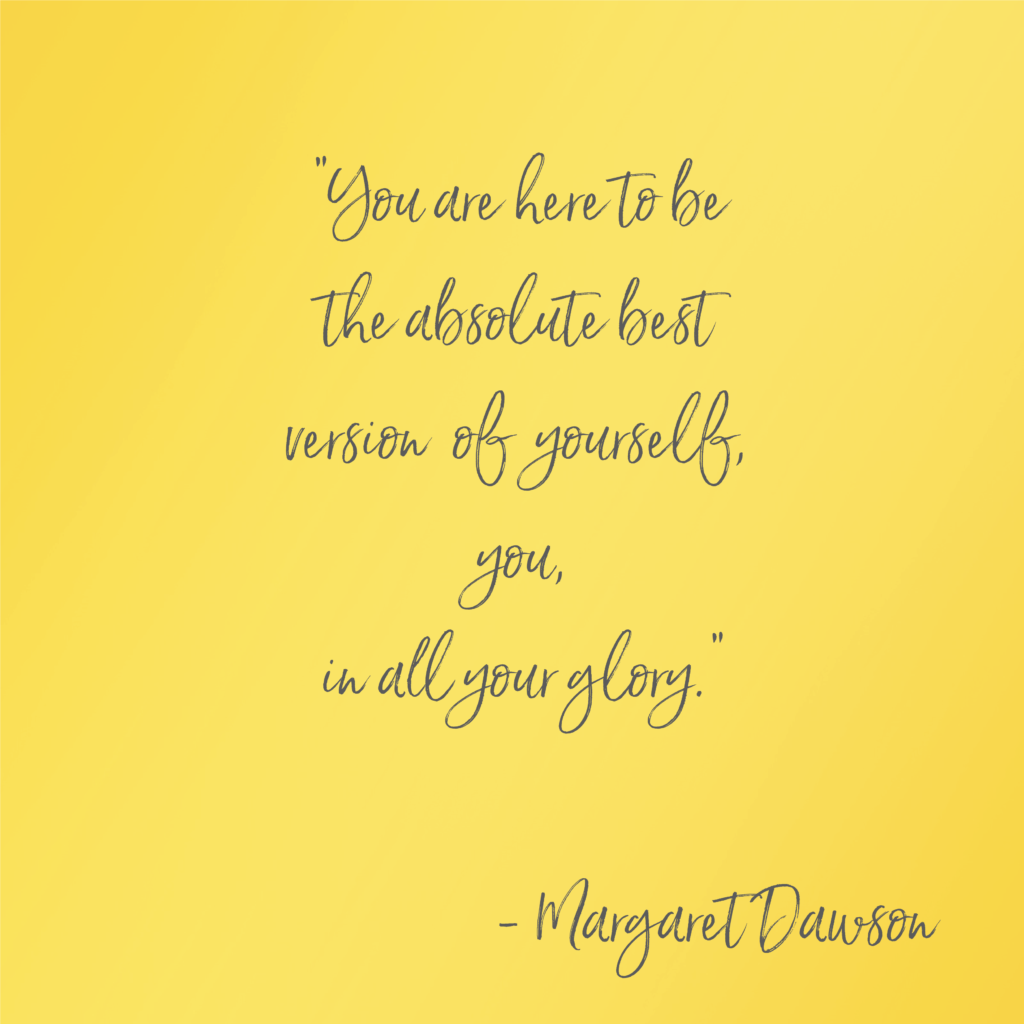 Think back to when you were three or four years old – or whatever your earliest memory is.
Think back to when you were three or four years old – or whatever your earliest memory is.
What did you love?
What were you like?
Chances are your memories are wonderfully simple. You loved swinging. You loved playing house with your best friend. For me, I have some very clear memories or really more feelings.
I remember clearly I wanted to be an actress. In fact, at some young age, I was absolutely positive I was going to be a famous Broadway singer and actress. I loved musical theatre more than anything. I started trying out for shows at the age of four. At a slightly older age, I would ride my bike to the community theatre and try out for musicals, along with much older kids and adults.
It was just so clear.
I also have wonderful memories of sitting in the driveway of our house in Palo Alto, California, watching the neighbor boy, Stanley, shoot baskets. I thought he was the most divine creature, and my mother tells me I would say, “He is just like a wonderful chocolate bar, and I want to eat him up.” Who says that? A child who has no filter and loves life as it is. And who hasn’t been told you aren’t supposed to think someone different from you is absolutely beautiful.
I was also in love with another four year old in the neighborhood, David, who I would play house with. And I loved my best friend, Leah, who lived across the street, and whose father was in theatre. And I loved running around the neighborhood to all the different families, especially around meal time, and especially the Mexican-American family whose mother made the most amazing food in the world.
Your light is the purest form of joy
My belief in becoming a great actress was so clear in fact that, for a period of time, I told people my name was “Candy”. I thought that was a great actress name, and it was the name of the character in the hit TV show at the time, Here Comes the Brides, who was in love with the character played by Bobby Sherman. Who I also loved. I was too young to realize it was really much more of a stripper name. 🙂
This was a period when I also developed a habit of singing little songs to myself. These songs could be about anything: going to the store, swinging on the swing set, eating dinner. Anything. And they always had the same basic melody. It never occurred to me to not just sing out loud whenever the desire hit me.
I share these memories because to me this was the last time I remember a time when I completely and fully was letting my true light shine. And when you are shining your light, you are pure in your joy for the world and those around you.
How to shine your light
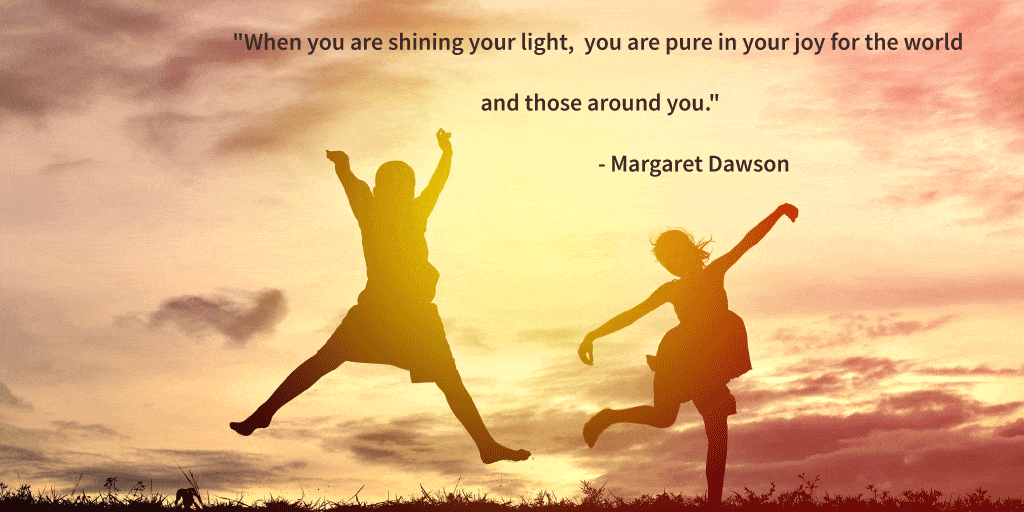 What is this light?
What is this light?
Your true light is your:
- Unique gifts to the world
- Inner beauty and power
- Connection to the universe
- Potential to be all you can be
It’s what makes you, YOU.
So think back to a time when you know in your heart you were letting your light shine on the world and being your true self.
Try to hold that glimmer of light in your hand. And then try starting to do one thing that used to bring you that pure joy.
We will be talking a lot about more about this over the months to come!

by Margaret Dawson | Apr 17, 2019 | Forgiving Yourself, True To Yourself
Why We Suffer From Imposter Syndrome
Do you ask yourself “Who am I?” or “Why am I here?” Psychology loves to call this the Imposter Syndrome, but I think it’s more than that.
When growing up, I continually asked the universe and prayed to God to answer these vital questions. I wanted someone to give me a declarative answer; to take away the pain I felt of always feeling unsure of who I was or why I was put on this planet. Some people seem to have such clarity in their sense of self and purpose in life. So I assumed that I just hadn’t received the answer yet. Hopefully, someday, I would find the holy grail of life’s purpose and have the answer.
Of course, I learned later this was also part of my constant belief that I was never good enough the way I was. And if only I could figure out who I was, then I would be good enough.
If you are nodding your head, I will tell you that nearly everyone feels this way and has asked these questions. Many people still do.
The first time I realized this was a universal phenomenon, I was shocked. I was speaking to a room full of successful, women leaders in the technology industry. I asked the audience if they ever asked themselves the question “who am I” or “why am I here?” Nearly every hand in the room went up.
That’s when a light bulb went off in my head.
Our Internal Identity vs our External image
Somewhere along the way many of us have lost sight of who we are.
On the outside, we may appear to be confident and assured with a clear sense of self. But on the inside, we are filled with doubts and suffering from imposter syndrome.
You know the experience. You walk into a meeting or some gathering where you assume everyone else there is more competent and qualified than you. Everyone else deserves to be there. However, you do not. You anticipate the horrible moment when everyone discovers you don’t belong. That you are not good enough.
A few years ago, I developed a fabulous way to combat the imposter syndrome. I think back to a book I used to read my children, titled, Everybody Poops.
The book is designed to teach children how everyone is the same. I think it’s also a fun way to help toilet train toddlers. But for me, the book has become my mantra when I walk into a room. I use it to remind myself that no matter how beautiful, successful, talented or wealthy everyone else is or might be, at some point, they all sit on a toilet with a naked bum and poop. Oh, and their poop probably stinks, too. (I added that part; the book doesn’t talk about smells!)
This beautiful mantra helps me go from insecure to confident and often results in me entering these situations with a little grin on my face. This makes others usually assume I am feeling confident in who I am. Ironically, as we now know, they are probably suffering from imposter syndrome themselves.
Rediscovering Why You are Here
So, I am now going to reveal to you that age-old question of WHY YOU ARE HERE.
Are you ready?
You are here to be . . . YOU.
Yep, that’s it. You are on this planet to be the wonderful you only you can be.
But there is a caveat. It’s not just any you.
You are here to be the absolute best version of yourself — you in all your glory. Not hiding your talents, or questioning who you are, or trying to be something you are not because you think that’s what others want.
You are here to be the YOU that you were born to be.
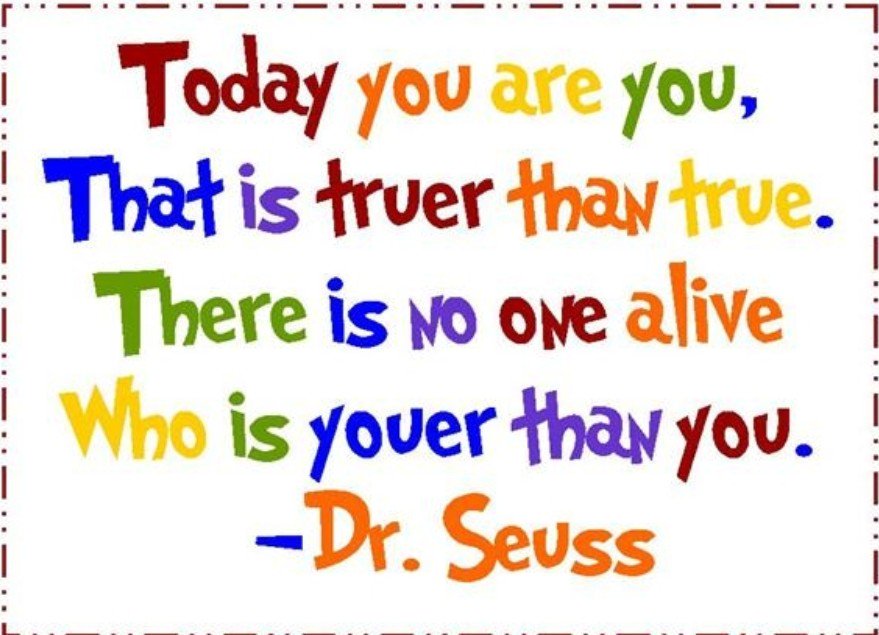
Letting Your True Light Shine
This is what I call: Letting Your True Light Shine!
The reason we keep asking this question is we have somehow lost or dimmed our light. We have forgotten who that perfect, raw, unique self we were when we were little. When the only thing we knew to be was who we were or who we are.
There’s a verse in the bible that talks about “man” being created in God’s perfect image. It’s true. You are more than good enough. You are perfect – just the way you are.
I think singer Pink says it best in her song, F**king Perfect. Put this on your mirror and tell yourself every morning, “I am perfect!”
Pretty, pretty please, don’t you ever ever feel
Like you’re less than f***in’ perfect
Pretty pretty please, if you ever, ever feel like you’re nothing
You’re f***in’ perfect to me!
You are perfect just the way you are! Go out there and let your true light shine, baby!
Watch Pink’s Video












 I work hard to be a good parent. For example, I make a point to read to my kids, help them to care about school achievement and, most of all, to be good, kind boys in a world that can seem to be desperately lacking good, kind male role models.
I work hard to be a good parent. For example, I make a point to read to my kids, help them to care about school achievement and, most of all, to be good, kind boys in a world that can seem to be desperately lacking good, kind male role models.






 Think back to when you were three or four years old – or whatever your earliest memory is.
Think back to when you were three or four years old – or whatever your earliest memory is. What is this light?
What is this light?
